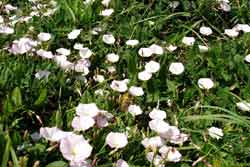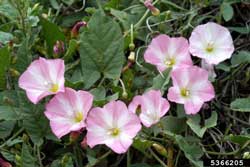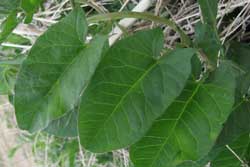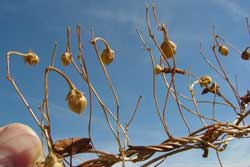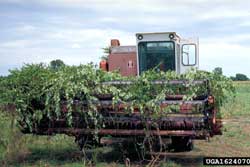Morning Glory—Convolvulus arvensis aka Field Bindweed
An aggressive perennial, morning glory spreads by rhizomes (creeping horizontal roots) and by creeping stems to form a dense ground cover. It can be found in orchards, fields, lawns, stream banks, lake shores, roadsides and ditches.
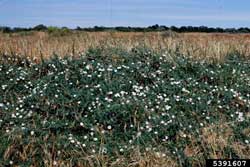
Also called field bindweed, morning glory is an invasive perennial originally from Europe, North Africa and Asia.
Click on images to view full-size
Identification and Control Information
- Fact Sheet with Identification Tips and Control Methods (PDF) —King County Noxious Weed Control Program, Washington State
- Integrated Pest Management Prescription: Field Bindweed or Morning Glory (PDF) —Thurston County, Washington State
- Integrated Pest Management for Home Gardeners and Landscape Professionals: Field Bindweed (PDF) —University of California, Davis
- Coping with Field Bindweed without Using Herbicides (PDF) —Sue Dockstader, Journal of Pesticide Reform; Northwest Coalition for Alternatives to Pesticides
- Fact Sheet: Field Bindweed (PDF) —USDA Forest Service
- The Organic Weed Management Website—Cornell University
- Invasive Alien Plant Species of Virginia: What are Invasive Alien Plant Species and why are they a problem?—Virginia Department of Conservation & Recreation
- Alien Plant Invaders of Natural Areas brochure (PDF) —Plant Conservation Alliance
- What the Heck is an Invasive Plant? brochure (PDF) —Plant Conservation Alliance
- Integrated Pest Management for Home Gardeners and Landscape Professionals: Weed Management in Landscapes (PDF) —University of California
- Weeds and Your Garden brochure (PDF) —New York State IPM Program and Cornell Cooperative Extension
- Weed Management in the Home Garden (PDF) —Iowa State University Extension
[Photos, left to right: Barry Rice, sarracenia.com, Bugwood.org; Jan Samanek, State Phytosanitary Administration, Bugwood.org; K. George Beck & James Sebastian, Colorado State University, Bugwood.org; K. George Beck & James Sebastian, Colorado State University, Bugwood.org; Richard Old, XID Services, Inc., Bugwood.org; John D. Byrd, Mississippi State University, Bugwood.org]
